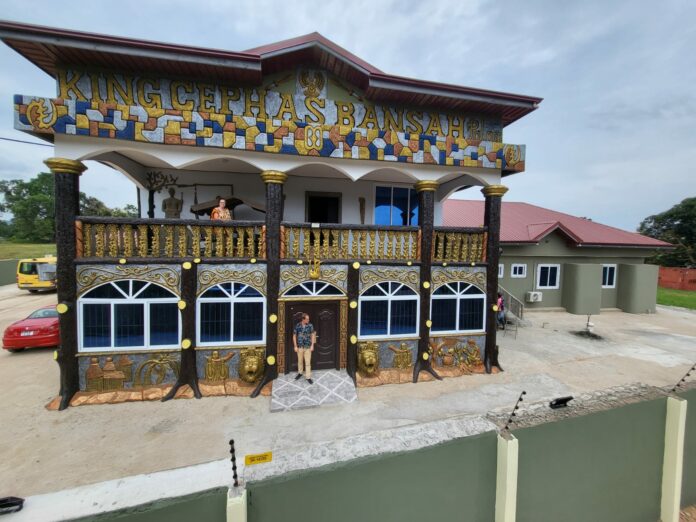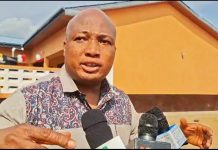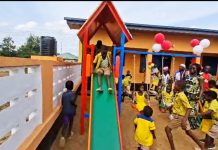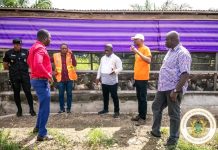The Ngoryifia of Gbi, Togbe Cephas Kosi Bansah, has provided 19 boreholes with electric pumps for communities in the traditional area and surroundings in his efforts to address the perennial water problem that the residents faced in the Hohoe Municipality of the Volta Region.
Togbe Bansah said, he, most of the time, felt bad when people in the traditional area, and the municipality, struggled to have access to water, and in the process fetch from unhygienic sources.
Such a situation, he added, in this 21th Century should be addressed, which had become part of his development agenda.
Speaking at the inaugural ceremony of one of the electric water pump borehole systems at Gbi-Afega, Togbe Bansah said access to quality water should not be seen as a privilege, but the right to good health and sanitation in the various communities.

Ngoryifia, who has lived in Germany since 1970, explained that he and his wife, a German, Mrs. Gabriele Bansah, mobilised resources in her country and has provided important development needs in identifiable communities in the Gbi Traditional Area, and the Hohoe Municipality.
He said he did not limit the support for community development to only the Gbi area, but also provided boreholes for Lolobi now in the Oti Region, and Fodome in the Hohoe Municipality.
Togbe Bansah stressed that the German Embassy in Ghana supported the development activities he and the wife carried out most of the time in the area of provision of water to the people, and continuous assistance in their quest to address their development challenges.
He said he also facilitated development by constructing three foot bridges over River Dayi at Gbi-Akpatame, Dzagana and Kpoeta, all in the traditional area, at the cost of GH¢454,671.84.
Touching on education, Togbe Bansah said he had established a vocational training college at Gbi-Kpoeta to fight unemployment and unskilled rate among the youth in the area.
Togbe announced that he also gave financial assistance to needy individuals to support their businesses to enable them improve their standard of living, as part of a well-crafted strategy to reduce poverty and promote livelihood empowerment.
He also stressed the need for the people to protect the environment at all times, and said it was important for Ghanaians to cultivate the habit of sound protection practices to ensure a safe and healthy environment for the benefit of the present and future generations.
According to him, environmental protection should also be factored into considerations in putting up buildings and the type of materials used, should all be considered when building houses at Gbi in particular, and Ghana in general.
Togbe pointed out that it was important for Ghanaians and Africans to use available local materials to build their houses, which would be environmentally friendly and would help to promote good health among the people.
He said his house at Hohoe, which he described as modest with about 60 percent local materials used in building, was an example of how Ghanaians and Africans could use local materials in a modernised society to build their houses to reduce cost, and also reduce high temperature to an appreciable level.
Togbe said it was time for Ghanaians to adopt the use of solar energy, which he considered cheaper, even though with the initial cost of developing the technology, to convert sun shine into energy, adding that there were many people who found it difficult to pay their electricity bills, and with solar energy, it would be more cost effective.
“Look, this house was designed to fit into our environment, and solar energy is the source of power supply in this house, we know that solar energy remains cheaper, but this important source of energy is being wasted.”
He said, after years of observation, it was clear that Ghanaians used almost all the natural resources of the country, including gold, diamond, bauxite and timber, and only sunshine was not used, which had great potential for energy, and hoped that the country would develop the technology to make maximum use of it to promote development.









